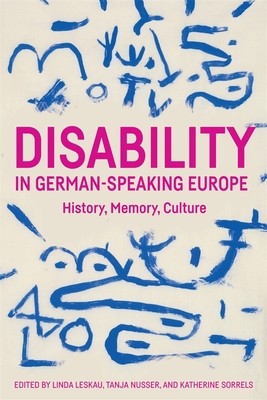
- We will send in 10–14 business days.
- Publisher: Camden House (NY)
- Year: 2022
- Pages: 224
- ISBN-10: 1640141081
- ISBN-13: 9781640141087
- Format: 15.2 x 22.9 x 1.6 cm, kieti viršeliai
- Language: English
- SAVE -10% with code: EXTRA
Disability in German-Speaking Europe (e-book) (used book) | bookbook.eu
Reviews
Description
This collection reflects on the development of disability studies in German-speaking Europe and brings together interdisciplinary perspectives on disability in German, Austrian, and Swiss history and culture.
Ableism remains the most socially acceptable form of intolerance, with pejoratives referencing disability - and intellectual disability in particular - remaining largely unquestioned among many. Yet the understanding, depiction, and representation of disability is also clearly in a process of transformation. This volume analyzes that transformation, taking a close look at attitudes toward disability in historical and contemporary German-speaking contexts. The volume begins with an overview of the emergence and growth of disability studies in German-speaking Europe against the background of the field's emergence a decade or so earlier in the US and UK. The differences in timing, methodology, and research concentrations bring into focus how each cultural context has shaped the field of disability studies in its multiple and diverse approaches. Building on recent scholarship that uses a cultural studies approach, the volume's three sections analyze constructs of disability and ability in history, memory, and culture. The essays in the history section examine how the emotions, morality, and power have played into - and still do play into - the individual's experience of disability. Those in the memory section grapple with the origins of the Nazi persecution of people with disabilities, the fight for recognition of this genocide, and the politics of its commemoration. Finally, the culture section offers close readings of disability in literary and filmic texts from the twentieth and twenty-first centuries.EXTRA 10 % discount with code: EXTRA
The promotion ends in 21d.23:51:13
The discount code is valid when purchasing from 10 €. Discounts do not stack.
- Publisher: Camden House (NY)
- Year: 2022
- Pages: 224
- ISBN-10: 1640141081
- ISBN-13: 9781640141087
- Format: 15.2 x 22.9 x 1.6 cm, kieti viršeliai
- Language: English English
This collection reflects on the development of disability studies in German-speaking Europe and brings together interdisciplinary perspectives on disability in German, Austrian, and Swiss history and culture.
Ableism remains the most socially acceptable form of intolerance, with pejoratives referencing disability - and intellectual disability in particular - remaining largely unquestioned among many. Yet the understanding, depiction, and representation of disability is also clearly in a process of transformation. This volume analyzes that transformation, taking a close look at attitudes toward disability in historical and contemporary German-speaking contexts. The volume begins with an overview of the emergence and growth of disability studies in German-speaking Europe against the background of the field's emergence a decade or so earlier in the US and UK. The differences in timing, methodology, and research concentrations bring into focus how each cultural context has shaped the field of disability studies in its multiple and diverse approaches. Building on recent scholarship that uses a cultural studies approach, the volume's three sections analyze constructs of disability and ability in history, memory, and culture. The essays in the history section examine how the emotions, morality, and power have played into - and still do play into - the individual's experience of disability. Those in the memory section grapple with the origins of the Nazi persecution of people with disabilities, the fight for recognition of this genocide, and the politics of its commemoration. Finally, the culture section offers close readings of disability in literary and filmic texts from the twentieth and twenty-first centuries.

Reviews